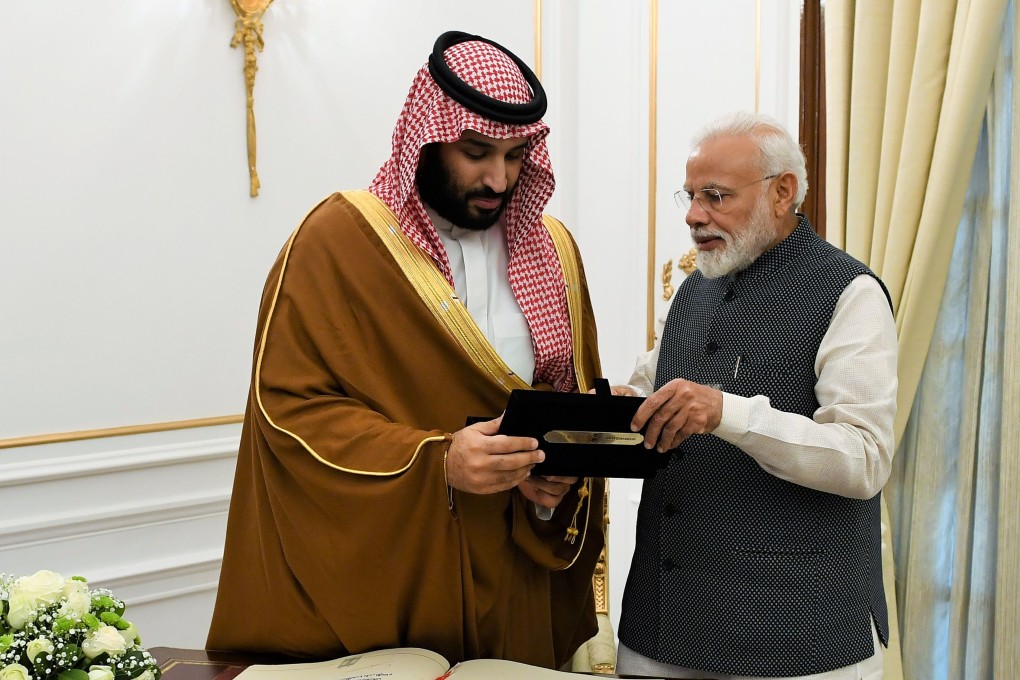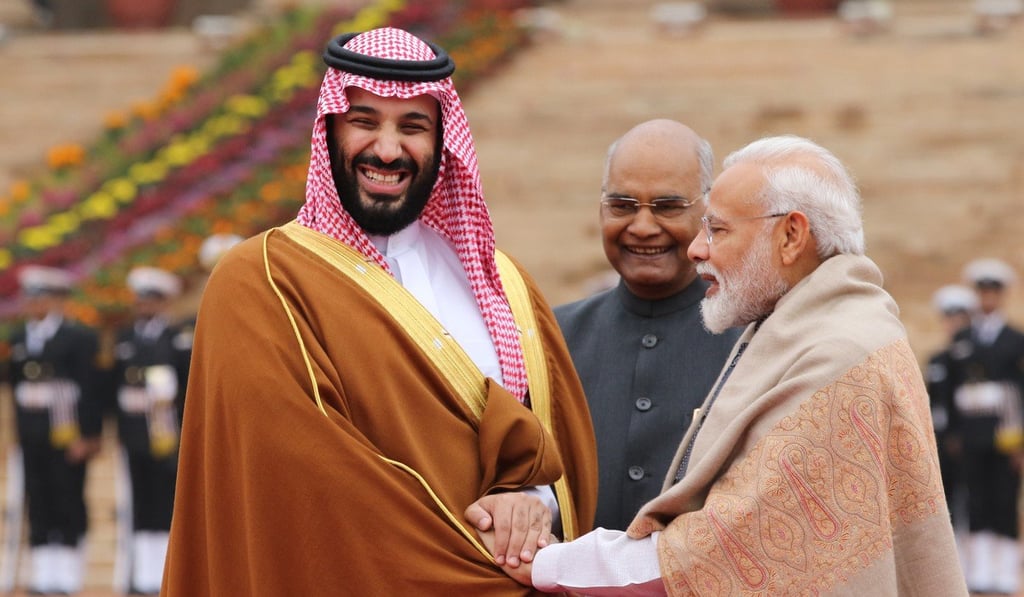Advertisement
Opinion | Saudi Crown Prince MBS achieves deft balancing act between India and Pakistan in aftermath of Kashmir attack
- Relations between India and Pakistan have been even more strained than usual following February 14 suicide bombing
Reading Time:3 minutes
Why you can trust SCMP

Saudi Crown Prince Mohammed bin Salman received a warm welcome in India on Tuesday, when Prime Minister Narendra Modi broke protocol and greeted his visitor at the airport – despite the crown prince not yet being the head of state. The interaction was closely scrutinised given the crown prince, known as MBS, visited Pakistan earlier in the week and reiterated Saudi’s traditional support for Islamabad.
Relations between India and Pakistan have been even more strained than usual in the aftermath of the February 14 suicide bombing in Kashmir that killed more than 40 Indian security personnel.
The attack has been blamed on Pakistani-based Jaish-e-Mohammad (Jem), and Modi has vowed to punish those responsible and impose international isolation on Pakistan. India has lobbied for JeM and its leader to be added to the UN’s terror watch list.
While in Pakistan, MBS offered wholehearted support to Prime Minister Imran Khan’s government. A joint statement underlined “the need for avoiding politicisation of UN listing regime”, much to Delhi’s chagrin.
Advertisement
In turn, the references to terrorism at the Modi-Salman press conference were generic but the joint statement was more substantive and the fine print appeared to address India’s concerns.
The two leaders “condemned in the strongest terms, the recent terrorist attack on Indian security forces on 14 February, 2019 in Pulwama in Jammu & Kashmir ” and also “called upon all countries to renounce the use of terrorism as an instrument of state policy”.
Advertisement

“Both sides agreed on the need for creation of conditions necessary for resumption of the comprehensive dialogue between India and Pakistan,” the joint statement said.
Advertisement
Select Voice
Select Speed
1.00x
